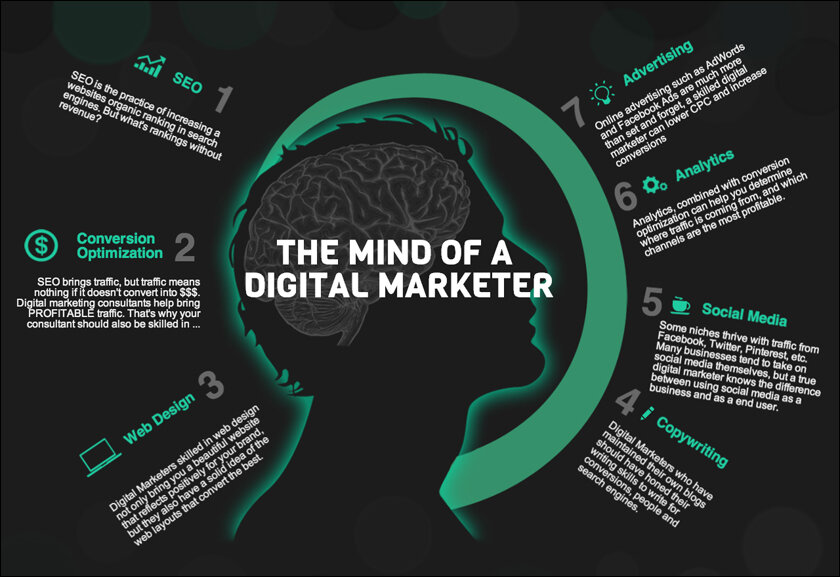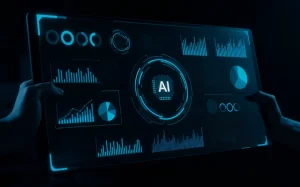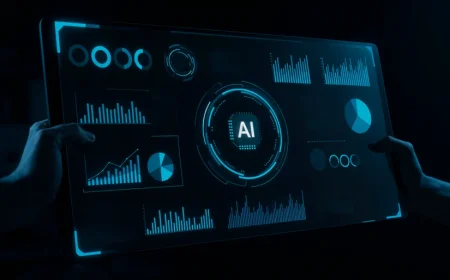Whether you are navigating the digital realms or crafting eco-friendly futures, career ball is in your court, and is rolling with a touch of humour and a whole lot of possibilities.
In the whimsical dance of technological progress and industry metamorphosis throughout 2023, a dazzling array of career opportunities has emerged, turning the conventional job landscape into a playground of innovation. These fresh prospects not only captivate the wandering minds of students but also encourage a more expansive view of the professional journey. It is as if the career options are having a grand reunion, inviting you to the coolest party in town where robots mingle with sustainability gurus, and AI shares a laugh with ethical hackers. So, whether you are navigating the digital realms or crafting eco-friendly futures, the career ball is in your court, and it is rolling with a touch of humour and a whole lot of possibilities! Get ready to step into the future with a smile.

1. DATA SCIENTIST
Data Scientists use statistical analysis, machine learning, and programming skills to extract insights from large datasets, informing strategic decisions. They clean and preprocess data, develop and deploy machine learning models, and create visualizations for effective communication. Proficiency in Python or R, strong statistical and mathematical skills, knowledge of machine learning algorithms, and effective communication abilities are essential. Database and data manipulation skills, critical thinking, and continuous learning are also crucial in this role.
Data science stands out as one of the most dynamic and rapidly expanding fields on a global scale, finding applications across every industry. Professionals in this domain can command an annual salary ranging from Rs 14L to Rs 25L on average.

2. ARTIFICIAL INTELLIGENCE AND MACHINE LEARNING
AI and ML engineers serve as the visionaries behind the intelligent future. They conceptualize, build, and implement AI and ML systems, crafting applications that automate processes, boost efficiency, and unlock novel opportunities.
Professionals in Artificial Intelligence (AI) and Machine Learning (ML) design and implement algorithms enabling machines to learn from data. They apply AI concepts such as supervised and unsupervised learning to solve complex problems. Essential skills include proficiency in Python or R, a deep understanding of algorithms, statistical analysis, and machine learning frameworks like TensorFlow or PyTorch. Strong mathematical aptitude, programming expertise, and the ability to preprocess and analyse data are vital. These experts play a crucial role in developing innovative solutions across diverse fields, from predictive analytics in finance to computer vision applications in healthcare.

These professionals are reshaping the world, and their expertise is in great demand. AI and ML engineers have the potential to earn an average annual salary ranging from Rs 11L to Rs 21L.

3. DIGITAL MARKETER
Digital marketers devise and execute online marketing strategies to promote products or services. They leverage various digital channels, including social media, email, SEO, and content marketing, to reach target audiences. Key skills include proficiency in digital advertising platforms, data analytics, content creation, and social media management. Digital marketers must stay updated on industry trends, possess effective communication skills, and have a knack for creativity. Their role involves optimizing campaigns, analysing metrics, and enhancing the online presence of brands. In-depth knowledge of SEO techniques, proficiency in tools like Google Analytics, and a strategic mindset are crucial for success in this dynamic field.
Digital marketers have the option to specialize in specific areas like SEO, social media, content, and email, with the potential to earn an average salary ranging from Rs 4L to Rs 15L per annum.

4. CYBERSECURITY ANALYST
Cybersecurity analysts act as the guardians of the cyber world, safeguarding an organization’s data and systems against cyber threats and attacks. Cybersecurity analysts safeguard organizations from cyber threats by implementing security measures and monitoring for potential breaches. They analyse system vulnerabilities, conduct risk assessments, and develop strategies to protect sensitive information. Key skills include proficiency in security tools, knowledge of network protocols, and expertise in threat detection and incident response. Strong analytical and problem-solving skills are essential, along with an understanding of the latest cyber threats and trends. Cybersecurity analysts must stay updated on emerging technologies, possess excellent communication skills, and be adept at collaborating with cross-functional teams to fortify an organization’s defence against cyberattacks.
In the face of escalating and sophisticated cyberattacks, cybersecurity has emerged as a pivotal and demanding field. Analysts find opportunities in diverse sectors such as IT, banking, and defence, commanding an average annual salary ranging from Rs 6L to Rs 20L.

5. PROMPT ENGINEER
A Prompt Engineer is a professional responsible for developing and maintaining prompt command languages or scripts within a software or system. They design efficient and user-friendly prompts that facilitate seamless user interactions. Key skills include programming expertise, often in languages like Python, Bash, or PowerShell, and a deep understanding of system architecture. Prompt Engineers need proficiency in debugging and troubleshooting, ensuring prompt commands function optimally. Effective communication skills are crucial to collaborate with software developers and end-users. Attention to detail, adaptability, and staying current with scripting languages and technologies are essential for success in this role.
As a burgeoning and innovative field with applications spanning various industries, professionals in this domain can earn an average annual salary ranging from 5L to 10L.

6. GREEN SPECIALISTS
Green Specialists, often found in sustainability-focused roles, work to promote eco-friendly practices within organizations. They develop and implement strategies to reduce environmental impact, such as energy conservation, waste reduction, and sustainable sourcing. Key skills include a deep understanding of environmental regulations, expertise in green technologies, and the ability to conduct environmental impact assessments. Green Specialists often require strong analytical and problem-solving skills to identify areas for improvement and measure sustainability metrics. Effective communication is essential for collaborating with internal teams, suppliers, and stakeholders to drive eco-conscious initiatives and promote a culture of environmental responsibility.
Green specialists have diverse opportunities across sectors including energy, agriculture, construction, transportation, waste management, policy, research, and consulting. Salaries in this field can vary, ranging from Rs 4L to Rs 40L per annum, contingent upon the specific role and specialization.
“In the kaleidoscope of evolving career landscapes, the fusion of technology, sustainability, and cybersecurity paints a vibrant tapestry of possibilities. As we step into the future, the roles of Data Scientists, AI and ML Engineers, Digital Marketers, Cybersecurity Analysts, Prompt Engineers, and Green Specialists not only redefine industries but also offer a playground of innovation. From the whimsy of AI mingling with ethical hackers to the eco-conscious dance of Green Specialists, these careers beckon individuals to a grand reunion of possibilities. So, with a touch of humour, a wealth of skills, and the promise of a smile, the future awaits those ready to shape it.”









